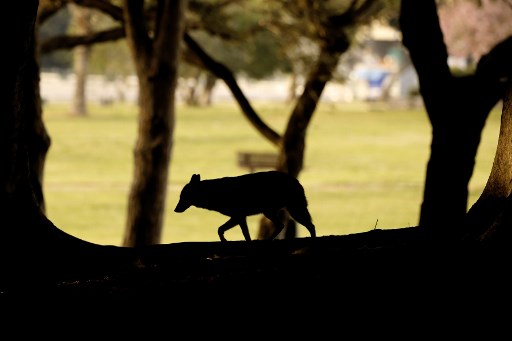
Pictures by JACK GUEZ
Agence France-Presse
TEL-AVIV, Israel (AFP) — With the coronavirus keeping Israelis indoors, dozens of jackals have taken over a deserted park in Tel Aviv, scavenging for food in what is usually a playground for joggers and families.
The normally timid animals wander freely among palm trees and across the grass of Hayarkon Park, an oasis in the Mediterranean city that was also a magnet for cyclists and picnickers until the arrival of COVID-19.
The disease has cost almost 120 lives in Israel.
Hayarkon prides itself as the lung of Tel Aviv, complete with a river and enough space for tourists to pitch tents during last year’s Eurovision song contest, when hotels were fully booked.
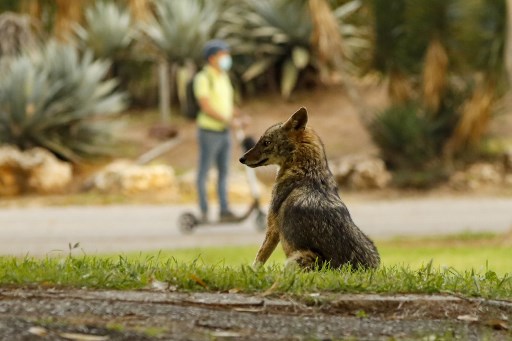
Now, rare human visitors wear masks and use their phones to photograph jackals, the park’s new occupants.
Normally, the dog-like animals would only venture out from their burrows or the bushes at night in more secluded parts of the park to search for scraps left by visitors, zoologist Yariv Malichi told AFP.
“But once you take away the trash people are littering in the park, jackals have a problem — they need to find another food source,” he explained.
“They are wandering far from their territories searching for food,” before nightfall, he said.
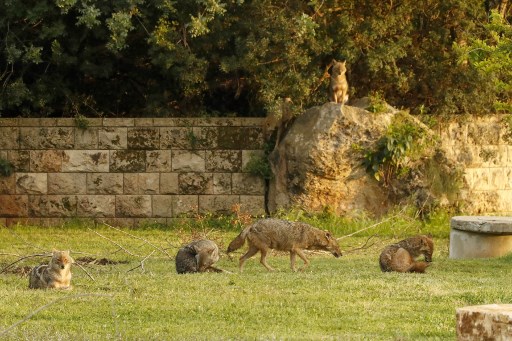
“They really feel comfortable in the park without people.”
The official from the Israeli Nature and Parks Authority said the lack of food has been more acute because the coronavirus crisis has struck right in the middle of the jackals’ breeding season.
On pathways lined with yuccas and prickly pear cacti, the occasional helmeted cyclist can encounter the animals, who also appear undisturbed by joggers.
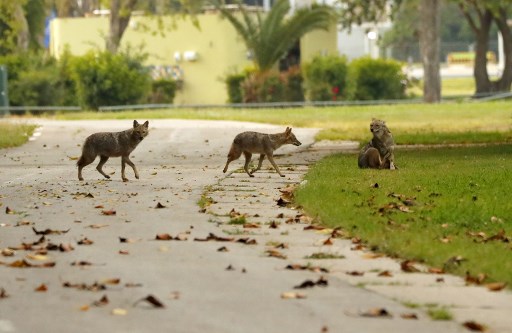
Malichi said he has not heard of any incidents with the animals, but warned against them growing too familiar with humans.
“Our concern is that jackals will change their behaviour and get used to people because some people are throwing meat” to them, he said.
“Once a wild animal is making the connection ‘human equals food’, the danger is there, they’ll start approaching people expecting to get food,” he said.
“It can be a small kid or a grown-up man, they don’t care,” Malichi said. “Leave them alone, don’t feed them.”
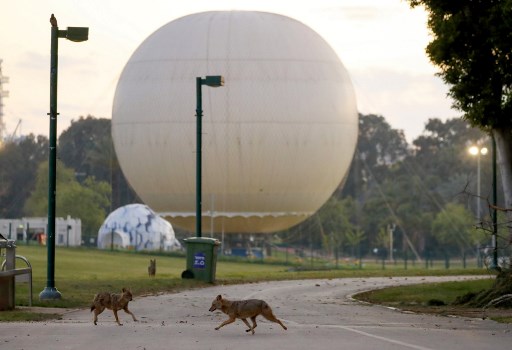
© Agence France-Presse







